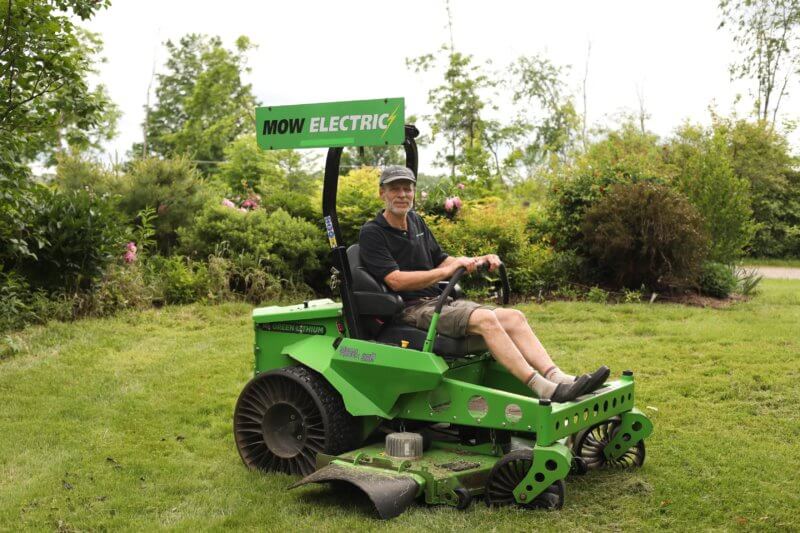Switching to e-lawn care equipment is more important than ever
While the annoying wail of conventional lawn mowers has long been associated with summer, that sound is thankfully becoming less common with the growing popularity of battery electric lawn equipment.
There’s lots of reasons why so many people are switching to e-lawn equipment. Due to advancements in lithium-ion battery technology, there are now over 25 manufacturers, including at least nine offering residential riding mowers. And in Vermont, almost all the electric utilities offer rebates, which makes e-lawn equipment (purchased or picked-up in Vermont) even more affordable.
Operating cost savings and convenience is also a huge motivating factor. E-lawn equipment eliminates the need to buy, transport and handle gasoline, doesn’t require oil changes and tuneups, and should run for many years without needing any repairs. And without any oil or gas to spill out, most walk-behind e-mowers are designed to stand upright for easy storage. Equally important, e-lawn equipment is quiet and emission free.

Steven Wisbaum, founder of the Mow Electric! campaign, mowing with the Ten Stones Village Association’s Mean Green battery electric zero-turn “commercial” lawn mower.
With ever-mounting evidence of the existential impacts of human-caused climate change, many people are trying to shrink their personal carbon footprint, either by driving electric cars, weatherizing their homes, flying less, installing solar photovoltaic systems or heat pumps, and switching to e-lawn equipment.
While a single residential conventional mower or “chore tool” doesn’t burn nearly as much fuel as a car or home furnace, the collective impact of all this lawn equipment is huge. In fact, a recent Federal Highway Administration analysis estimated that in Vermont alone, over 5 million gallons of gasoline are burned annually by lawn-care equipment, which generates over 5,000 tons of cabon dioxide. And this doesn’t even include the millions of gallons of diesel fuel consumed by diesel-powered lawn mowers operated by contractors, local and state public works departments, golf courses, schools, etcetera.
So, if your gas-powered lawn equipment is at or nearing retirement, and you’re considering making the switch, here are some things to keep in mind:
- How to choose: Since there’s lots of manufacturers, and quality is relatively consistent, choice will largely depend on the different features available. Ask your friends and neighbors about their equipment, and try it out. The Mow Electric website also has links to some of the popular video product reviews and websites.
- Stick with one manufacturer: If you’re buying multiple items (e.g., mower and chore tools), stick with one manufacturer since batteries and chargers are not interchangeable between manufacturers.
- Battery capacity/run-time: For larger yards, it’s a good idea to buy the higher capacity/longer run-time battery options.
- Buy local: Lastly, while e-lawn equipment can be purchased on-line and at big-box stores, most hardware, building supply and lawn equipment stores now sell e-lawn equipment.
(Steven Wisbaum is the founder of the Mow Electric! Campaign and website that contains a list of available equipment, links to equipment reviews and comparison videos, a directory for contractors in Vermont offering e-mowing services, and links to utility rebates.)

